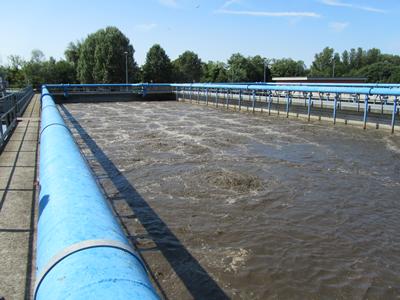Newly-funded network to focus on biotechnology solutions to ensure a low carbon future

The University of Southampton will lead a new Environmental Biotechnology Network (EBNet) as part of an initiative to underpin the UK’s move to a low carbon economy for the future.
EBNet, led by Southampton Professor Sonia Heaven as Principal Investigator, has received a share of £11M provided by the BBSRC, with the support of the EPSRC, to fund 6 collaborative Networks in Industrial Biotechnology and Bioenergy (BBSRC NIBB).
Over the next five years, EBNet will create a working community of key players in the field of environmental biotechnology, linking natural and social sciences and engineering disciplines to provide a bridge between the academic and business communities including FT100 companies in the water and waste sectors.
Other beneficiaries are likely to be innovative SMEs eager to explore and exploit advances in science and to participate in collaborative research as a means of developing new processes and markets.
One specific area of impact will come through a focus on tackling new challenges associated with emerging pollutants – micro-plastics, microfibers, nanoparticles, surfactants, pharmaceuticals and other endocrine disruptors that can interfere with biological hormone systems causing cancers, birth defects and other developmental disorders.
EBNet partners include Cranfield, Heriot-Watt, Newcastle and Surrey universities, and there are potential synergies with the National Biofilms Innovation Centre led by Southampton's Professor Jeremy Webb.
“The aim of EBNet is to develop and strengthen links between advanced molecular and applied microbiology, engineering and systems optimisation to maximise societal and other benefits,” said Professor Heaven, who is Head of the Water and Environmental Engineering Group at the University of Southampton. “Its overall goal is to take fundamental discovery science towards practical application in key areas of the human/environment interface and to respond to the pace of change needed to match expanding global demand for environmental protection with finite resources
“Successful exploitation of these opportunities depends on bringing together an enhanced knowledge of the underlying science with the ability to apply this in large-scale engineered systems, and to create more sustainable 'future-proof' technologies which must meet both societal expectations and increasingly stringent economic and environmental requirements,” Professor Heaven concluded.
